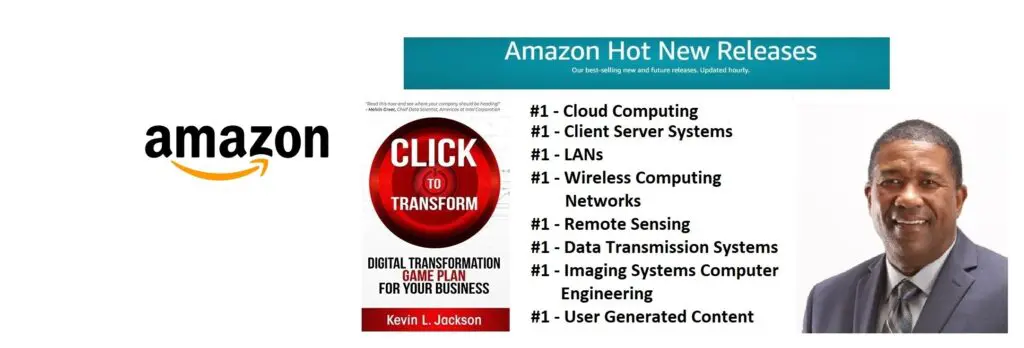Twitter Feed
Cloud Computing Wargames !!
Wikipedia “A wargame is a game that represents a military operation.” “Military simulations, also known informally as war games, are simulations in which theories of warfare can be tested and refined…
How the Government Tweets – An Update
Thanks goes out to Twitter_Tips for a link to Government agencies on Twitter: a few comprehensive sites posted by lindyjb which includes the following: The Government’s A-Twitter: A Comprehensive List…
How the Government Tweets
Last September in “Ambient Awareness. The cloud killer app? ” and ” The Cloud Wins in Minneapolis at the RNC! “, I wrote about how the cloud infrastructure and microblogging…
Bob Gourley on Cloud Computing and NetCentric Operations
Bob Gourley, Crucial Point CTO and former DIA CTO, just posted Cloud Computing and Net Centric Operations on his website CTOvision . In it he outlines how the OSD and ASD NII…
Obama Administration CTO Top Suggestions
Check out the top vote getters for suggestions to the nations’s first CTO! #5 with 5,835 votes Open Government Data (APIs, XML, RSS) We can unleash a wave of civic…
2009 Cloud Computing Events
2009 is off to a fast start with the following events on the horizon! February 2009 – “Bi-Annual On-line Government Cloud Computing Survey”, On-line February 3, 2009 – Open Group…
World Summit of Cloud Computing Virtual Site
The Israeli Association of Grid Technologies (IGT) has made its recent IGT 2008 World Summit of Cloud Computing available on-line. Speakers include: Day 1: Stevie Clifton, Co-Founder & CTO Animoto…
1105 Government Information Group does Cloud Computing
Mark your calendars for April 29, 2009 ! 1105 Government Information Group has announced that there will be a Cloud Computing Conference at the Ronald Reagan Building in Washington, DC.…
Sun Acquires Q-Layer
Yesterday, Sun Microsystems announced their acquisition of Q-layer. This Belgium based company automates the deployment and management of both public and private clouds. In the press release, David Douglas, SUN’s…
4 Factors Driving Digital Transformation ROI
The critical assessment factors for cloud ROI risk probability are the following:
- Infrastructure utilization
- Speed of migration to cloud
- Ability to scale business/mission processes
- Quality delivered by the new cloud-based process
These four factors directly drive digital transformation ROI because they affect revenue, cost, and the time required to realize any investment return. Differences between actual and projected values in these metrics indicate a likely failure to achieve the desired goals.
Although business alignment is always a primary digital transformation drive, ROI remains a key decision component. This metric should, however, be addressed from multiple vantage points to include cloud workload utilization, workload size versus memory/processor distribution and the virtual hardware instance to physical asset ratio.
Value delivered through innovation should also be part of the business value calculation. Value can be delivered through operational cost reductions, optimization of resource capacity, and a reduced total cost of ownership. Business process time reductions, product quality improvements and customer experience enhancements are also useful outcomes.
Security Controls
Business/mission model changes can also introduce operational risk. Acceptance of these risk are based on executive risk tolerance. Their risk mitigation decisions result in the implementation of security controls. A control will restrict a list of possible actions down to what is allowed or permitted by the organization. Encryption, for example, can be used to restrict the unauthorized use of data.
The security control continuum extends over three categories:
- Management (administrative) controls: policies, standards, processes, procedures, and guidelines set by corporate administrative entities (i.e., executive to mid-level management)
- Operational (and physical) controls: operational security (execution of policies, standards and process, education, and awareness) and physical security (facility or infrastructure protection)
- Technical (logical) controls: Access controls, identification and authentication, authorization, confidentiality, integrity, availability, and non-repudiation
They also encompass the following types:
- Directive controls: often referred to as administrative controls, advise employees of the behavior expected of them during their interfaces with or use of information systems
- Preventive controls: include physical, administrative, and technical measures that preclude actions that violate policy or increase the risk to system resources
- Deterrent controls: use warnings and a description of related consequences to prevent security violations
- Compensating controls: Also called an alternative control, a mechanism that is put in place to address security requirements deemed impractical to implement
- Detective controls: Refer to the use of practices, processes, and tools that identify and possibly react to security violations
- Corrective controls: involves physical, administrative, and technical measures designed to react to a security-related incident in order to minimize the opportunity for an unwanted event to reoccur
- Recovery controls: restore the system or operation to a normal operating state once integrity or availability is compromised
The costs associated with the implementation of any security control should be weighed against the value gained from digital transformation business/mission process improvements.
Would you like to learn more about digital transformation innovation? Pick up a copy of my new book, Click to Transform!Â

Cloud Computing
- CPUcoin Expands CPU/GPU Power Sharing with Cudo Ventures Enterprise Network Partnership
- CPUcoin Expands CPU/GPU Power Sharing with Cudo Ventures Enterprise Network Partnership
- Route1 Announces Q2 2019 Financial Results
- CPUcoin Expands CPU/GPU Power Sharing with Cudo Ventures Enterprise Network Partnership
- ChannelAdvisor to Present at the D.A. Davidson 18th Annual Technology Conference
Cybersecurity
- Route1 Announces Q2 2019 Financial Results
- FIRST US BANCSHARES, INC. DECLARES CASH DIVIDEND
- Business Continuity Management Planning Solution Market is Expected to Grow ~ US$ 1.6 Bn by the end of 2029 - PMR
- Atos delivers Quantum-Learning-as-a-Service to Xofia to enable artificial intelligence solutions
- New Ares IoT Botnet discovered on Android OS based Set-Top Boxes
